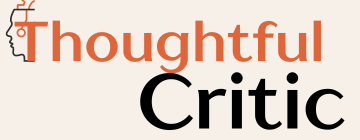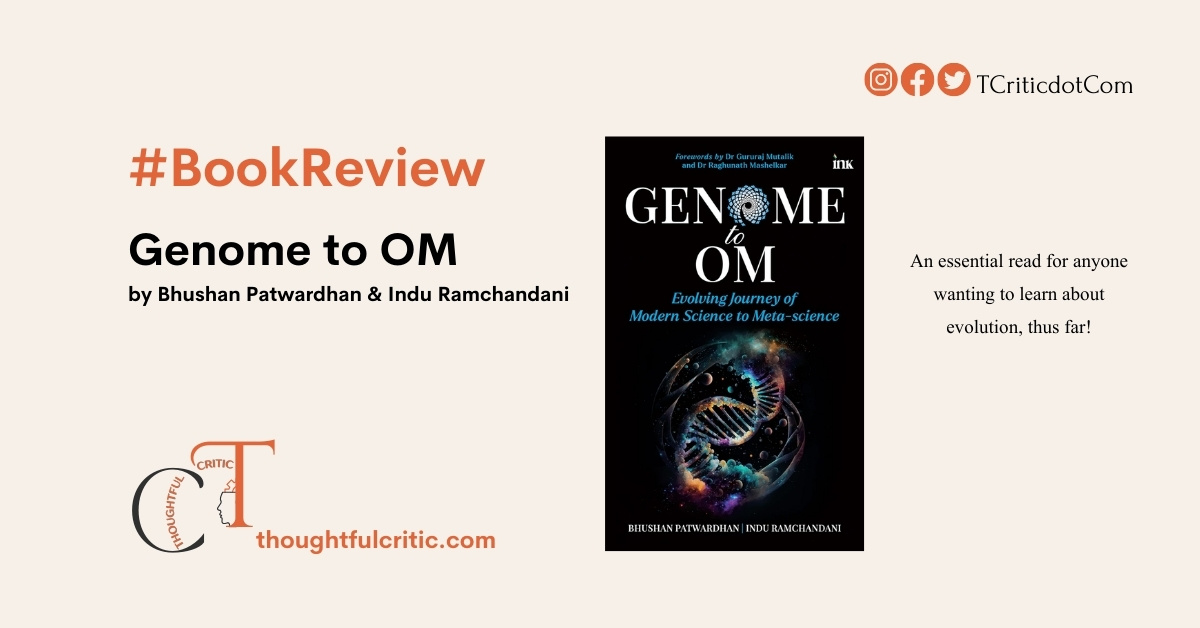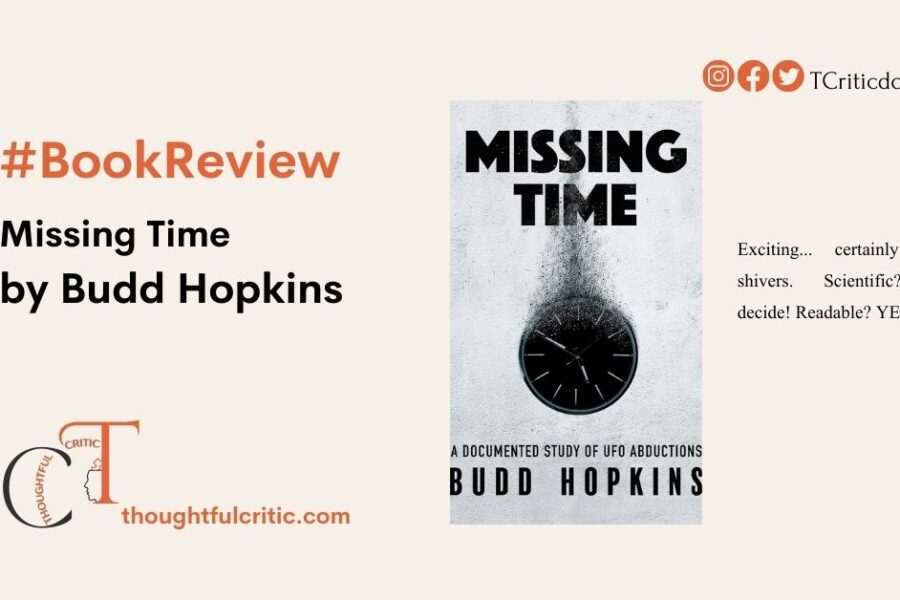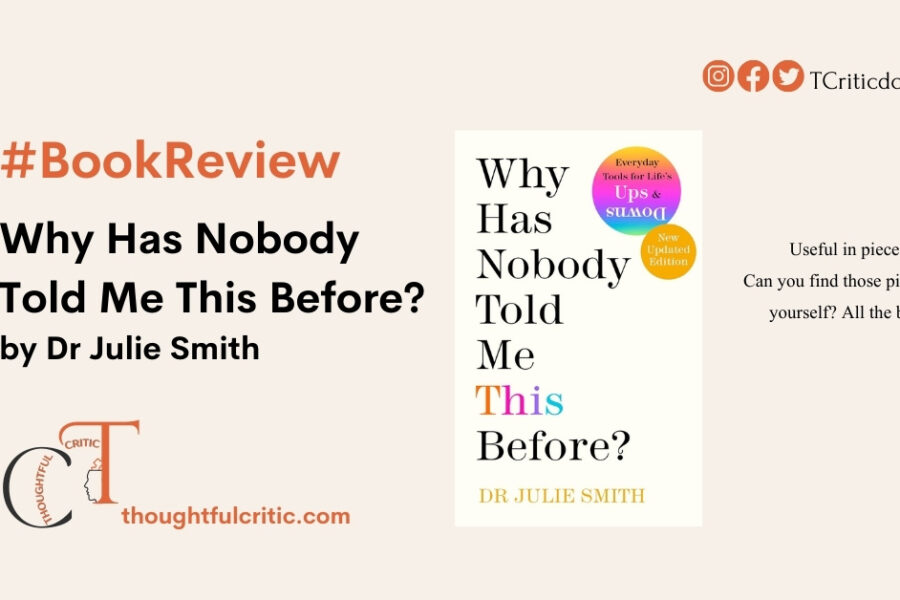Genome to Om by Bhushan Patwardhan and Indu Ramchandani is an intellectually ambitious work that successfully bridges the chasm between modern scientific advancements and the profound spiritual wisdom of ancient Indian thought. The book delves into humanity’s evolutionary journey with its holistic approach, proposing a unique framework where empirical science and spiritual philosophy coexist harmoniously. By examining fundamental questions about life, consciousness, and progress, the authors provide a compelling roadmap for addressing the pressing challenges of the contemporary world.
Revisiting Ancient Wisdom for a Modern World
At the heart of Genome to Om lies a profound engagement with the knowledge systems of ancient India. The authors draw heavily from the Vedas and Upanishads, demonstrating their enduring relevance in understanding today’s global challenges. Concepts such as Tat Tvam Asi (“That Thou Art”) and Para Vidya (higher knowledge) are brought to the fore, reminding readers of the depth of ancient Indian metaphysics. These teachings, rooted in interconnectedness and ethical living, are presented not as relics of the past but as timeless principles that modern science can integrate into its pursuit of knowledge.
The book explores the Upanishadic view of consciousness, which is particularly striking. While contemporary neuroscience often confines consciousness to brain function, the authors present an alternative: the Indian philosophical idea of the self (Atman), which transcends the physical and exists as part of the universal consciousness (Brahman). This perspective challenges reductionist approaches and offers a more expansive understanding of the human mind.
Genome to Om also underscores the power of mythology and storytelling in examining these ancient ideas. Indian myths are not treated as mere allegories but as sophisticated frameworks for conveying universal truths. By revisiting these narratives, the authors suggest that the world can learn valuable lessons about ethics, coexistence, and the cyclicality of life.
A Meta-Scientific Framework
One of the book’s most significant contributions is its advocacy for “meta-science,” a paradigm that goes beyond the reductionism of conventional science to embrace a holistic understanding of reality. Patwardhan and Ramchandani argue that scientific progress has brought remarkable advancements, but it often lacks the ethical and philosophical grounding to address complex global issues.
The authors propose a transition from the “Genome,” symbolising the reductionist approach of modern science, to “Om,” representing knowledge’s integrative, spiritual dimension. This shift requires recognising the interconnectedness of all life forms and adopting a more inclusive worldview. For instance, the book discusses the microcosm-macrocosm continuum, an ancient Indian concept captured in the Sanskrit phrase Yatha pinde tatha brahmande (“As is the microcosm, so is the macrocosm”). This principle resonates with modern systems biology, emphasising biological systems’ interconnected nature.
By integrating spiritual insights into scientific inquiry, Genome to Om presents meta-science as a necessary framework for addressing contemporary crises such as climate change, resource depletion, and social inequality. The authors make a compelling case that these challenges cannot be resolved by technological solutions alone but require a transformation in human consciousness and ethical awareness.
Lessons from the Anthropocene Epoch
The book’s exploration of the Anthropocene epoch, the current era of human-driven environmental change, is timely and thought-provoking. Patwardhan and Ramchandani critically examine the ecological consequences of humanity’s dominance over nature, emphasising the urgent need for sustainable practices. They argue that ancient Indian philosophies, emphasising harmony and respect for all life, offer practical guidance for addressing ecological crises.
For example, the principle of Dharma (righteous duty) is highlighted as a guiding force for ethical living. The authors draw parallels between this ancient concept and modern calls for environmental responsibility, suggesting that a collective adherence to Dharma could mitigate human behaviour’s destructive tendencies.
The book also revisits the concept of prana (life force), presenting it as a unifying principle that underscores the interconnectedness of all living beings. By acknowledging the sacredness of life, as taught in Indian traditions, the authors propose a shift in humanity’s relationship with nature—from exploitation to stewardship.
Consciousness and the Quest for Meaning
A significant portion of Genome to Om is devoted to exploring consciousness, one of the most enduring mysteries of human existence. The authors examine this topic from both scientific and spiritual perspectives, offering a rich analysis that bridges these often disparate realms.
Indian philosophy views consciousness as an eternal and universal phenomenon distinct from the material world. This contrasts with the dominant scientific view, which often equates consciousness with neural activity. By juxtaposing these perspectives, the authors invite readers to consider a broader understanding of the mind and its potential.
The discussion extends to the “Who am I?”—a central theme in Indian philosophy. The authors explore how the Upanishads address this question through the concept of Atman, the individual self that is ultimately one with Brahman, the universal consciousness. This perspective provides a sense of purpose and interconnectedness that can help individuals navigate the uncertainties of modern life.
Ethical and Spiritual Progress
Genome to Om not only critiques the limitations of modern science but also celebrates its achievements, acknowledging the transformative impact of technologies such as genomics and artificial intelligence. However, the authors argue that these advancements must be guided by ethical and spiritual principles to ensure they benefit humanity.
Drawing from the ancient concept of Siddhis (spiritual powers), the book suggests that actual progress lies not in external achievements but in cultivating inner wisdom. Practices like meditation and yoga, rooted in Indian traditions, are presented as tools for achieving balance, mindfulness, and ethical awareness.
The authors also advocate for creating a “meta-society,” a global community that values interconnectedness, sustainability, and universal well-being. This vision aligns with the principles of Sanatana Dharma, which emphasise the eternal and universal truths of existence. By adopting these values, the authors argue, humanity can create a more harmonious and equitable world.
The Global Relevance of Indian Philosophy
While firmly rooted in Indian traditions, Genome to Om transcends cultural boundaries, presenting its insights as universally applicable. The authors emphasise that the principles of interconnectedness, sustainability, and ethical living are not limited to any one culture but are essential for addressing the global challenges of our time.
By integrating these ancient teachings into a modern context, the book highlights the enduring relevance of Indian philosophy in shaping a more inclusive and sustainable future. It serves as a tribute to India’s intellectual heritage and a call to action for the global community to embrace a more holistic approach to knowledge and progress.
Conclusion
Genome to Om is a profound and enlightening work that redefines the trajectory of human evolution by integrating science with spirituality. By revisiting ancient Indian wisdom and contextualising it within modern scientific advancements, the authors provide a compelling, reflective, forward-looking narrative.
The book’s emphasis on consciousness, ecological responsibility, and ethical progress offers valuable lessons for navigating the complexities of the contemporary world. Its advocacy for a meta-scientific approach challenges conventional paradigms, inspiring readers to adopt a more balanced and harmonious perspective on life.
While deeply rooted in Indian traditions, Genome to Om transcends cultural boundaries, presenting its insights as universally relevant. It is a testament to the enduring power of ancient wisdom and its potential to guide humanity toward a brighter and more sustainable future. This book is essential for anyone seeking a deeper understanding of life’s mysteries and the path to holistic progress.
Get a copy from Amazon India – click here
Review by Amit for Thoughtful Critic
Genome to Om by Bhushan Patwardhan Book Review
-
Thoughtful Critic Rating
Summary
The title is a significant publication. Though it is different in nature, the book stands parallel to Yuval Harari’s Sapiens. It is enjoyable, helpful, and full of learning and wisdom on human evolution thus far… you will surely like reading it to the last page.




